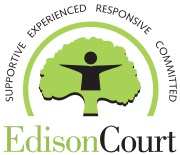Most individuals who experience sexual victimization and/or harassment agree that an apology – an acknowledgement that what happened to them was wrong - is an important step in the healing process. The fact is that these individuals rarely receive an apology. Perhaps one reason that apologies are hard to come by is that when they are given they are perceived as inauthentic or not good enough.
The comedian Louis CK recently responded to a report in the New York Times where five women told their stories about his behavior with a written apology. In his statement, he acknowledged that what he did was wrong. More importantly, he explained that he justified his behavior because he did not fully understand that his behavior was a real predicament for these five women. He did not fully recognize the power differential he maintained. With this statement he is accepting responsibility for his actions.
Several outlets have published pieces chastising the apology. It is true that he does not actually use the words “I am sorry”, but his admission and acknowledgement is a step toward healing, reconciliation, and transformation.
His apology offers a teachable moment for anyone who has ever committed a harmful sexual act. It shows that it can be done and it can be powerful. It takes courage to own up to harmful behavior, but doing so offers a space for authentic connection. It is unfortunate that what appears to be a meaningful apology is met with judgement and admonishment – the very things that lead to disconnection. Professionals working with people who have abused often observe that these individuals often have intense trouble expressing their thoughts as eloquently as they and others would like. Sometimes this is due to intellectual and other learning disabilities. At other times it can be due to shame and self-hatred as a result of their actions. In the end, it is the dialog that is the most important.
It is easy to unleash our collective rage at these public figures. However, this outrage does not and will not end sexual violence because most people who act in sexually inappropriate ways do not always fully understand that their behavior is harmful.
Louis C.K. is a prime example of this. He justified his behavior and believed that it was acceptable because he asked the women before he masturbated in front of them. He did not understand the impact of his behavior until much later. This in no way excuses his actions, but it provides a framework for understanding the mindsets of many people who act in sexually inappropriate ways.
Perhaps one way for people to better understand the impacts of the harm they cause when they engage in sexual harassment, sexual assault, or rape is for them to stop talking and start listening. Louis C.K. ends his statement by saying, “I will now step back and take a long time to listen.”
If he, and others in shoes like his, are willing to listen, maybe it is time for us to speak in open, honest, authentic conversations. We should embrace dialogue and honor that just because someone should have known that their behavior was wrong and harmful, doesn’t mean they actually knew it. Perhaps that starts with an apology and the willingness to listen.

Add new comment